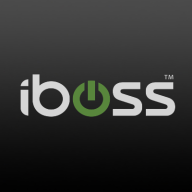


Google Cloud Identity and JumpCloud are two identity management solutions competing with distinct features tailored to various organizational needs. JumpCloud appears to have an upper hand in terms of feature breadth and user experience, appealing to businesses seeking comprehensive solutions, while Google Cloud Identity's integration within Google's ecosystem can be attractive for those already invested.
Features: Google Cloud Identity provides seamless integration with Google services, multi-factor authentication, and secure single sign-on capabilities. JumpCloud offers cross-platform compatibility, device management, and directory services accommodating diverse IT environments.
Room for Improvement: Google Cloud Identity could enhance its feature set beyond the Google ecosystem and improve the depth of security features. JumpCloud may benefit from refining its interface and expanding support for additional platforms while enhancing the integration process with non-Microsoft applications.
Ease of Deployment and Customer Service: Google Cloud Identity offers smooth integration for Google Workspace users, streamlining deployment but assuming familiarity with Google services for effective support. JumpCloud is flexible and suitable for varied systems, providing comprehensive documentation and support for deployment in dynamic tech environments.
Pricing and ROI: Google Cloud Identity delivers a competitive pricing model, particularly advantageous for Google Workspace users, offering favorable ROI. JumpCloud has a flexible pricing structure, providing value through its extensive feature set, potentially offering higher ROI for organizations requiring a broader range of services.



iboss offers a comprehensive security platform designed for diverse use cases such as web filtering, data loss protection, corporate proxy services, and URL filtering.
iboss integrates advanced features to address dynamic security needs, leveraging its strength in SASE, ZTNA, AI initiatives, and cloud integration, while ensuring seamless operations for remote work. It excels in historical forensics, malware protection, and flexible cloud deployments. Users benefit from comprehensive traffic scanning, robust malware detection, and PaaS capabilities that reduce hardware management. An intuitive admin console ensures efficient management with content filtering and low false positives. SSL decryption enhances security, while DLP protects data in AI conversations. Deployment is rapid and scalable, allowing effortless integration with emerging technologies.
What features does iboss offer?
What benefits and ROI should users consider?
iboss finds significant application in sectors such as education, where web filtering for K-12 is crucial, and in corporate environments requiring robust proxy services and URL filtering for network security. Its adaptability is essential in scenarios demanding flexible, decentralized security frameworks, particularly for remote work setups.
Cloud Identity is an Identity as a Service (IDaaS) and enterprise mobility management (EMM) product. It offers the identity services and endpoint administration that are available in G Suite as a stand-alone product. As an administrator, you can use Cloud Identity to manage your users, apps, and devices from a central location - the Google Admin console.
JumpCloud enables organizations to manage devices, users, and applications across platforms like Windows, Mac, Linux, iOS, and Android. It offers centralized authentication, identity and access management, single sign-on, directory services, security policy enforcement, and cloud service integration.
Organizations leverage JumpCloud for its robust device management, policy management, and seamless integration with applications such as Microsoft 365 and Google Workspace. Its flexibility, stability, scalability, and ease of use make it a strong choice for managing business directories, executing scripts on-demand, synchronizing system access, and implementing mobile device management. Key features include remote access, Windows Out of Box Experience, strong authentication and authorization controls, centralized user and device management, efficient onboarding and offboarding processes, and extensive security and reporting features.
What are the most important features?In specific industries, JumpCloud is utilized to manage a wide array of tasks such as automating administrative functions in healthcare, ensuring secure access to sensitive data in finance, and supporting remote work needs in technology sectors. Its ability to integrate with diverse platforms and provide centralized control makes it suitable for managing complex IT environments.
We monitor all Identity and Access Management as a Service (IDaaS) (IAMaaS) reviews to prevent fraudulent reviews and keep review quality high. We do not post reviews by company employees or direct competitors. We validate each review for authenticity via cross-reference with LinkedIn, and personal follow-up with the reviewer when necessary.